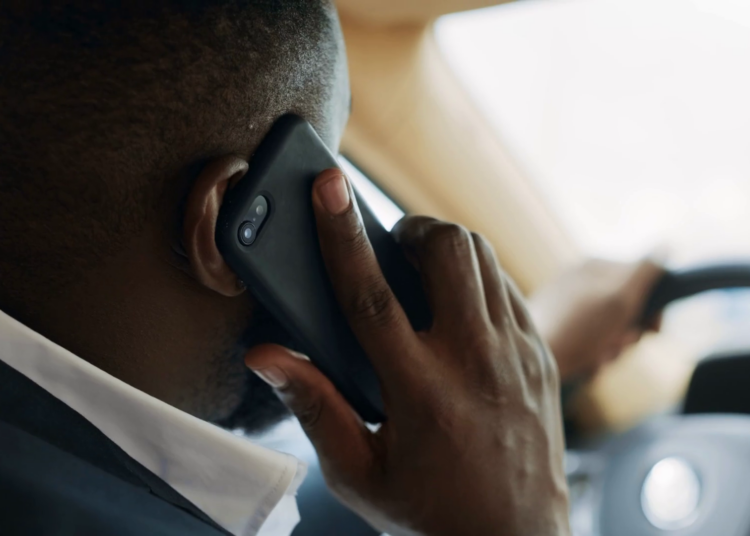Did you know that the World Health Organisation identifies distracted driving as a significant threat to road safety? Did you know that distraction increases the likelihood of crashes four-fold if you are driving and phoning? Did you know that the cognitive distraction from both hand-held and hands-free devices is the primary danger, not just the physical act of holding a phone? Did you also know that texting is particularly risky and raises the risk of a road crash by as much as 23 times?
Have you ever lost a loved one through a road traffic crash? What was the cause of the crash? Was it excessive speeding? Driving under the influence? Fatigue? Tyre burst? Or a night trip as a result of poor visibility? Or was it caused by distracted driving, which is the focus of the Federal Road Safety Corps for the 2025 Ember Months’ theme?
If you tell me that the causative factor was not determined, I won’t be surprised. Even when it was caused by a reckless driver, like the one I cited a fortnight ago, we would conclude that it was recklessness. If you read my piece last week, I concluded by saying that data on distracted drivers is a challenge in our clime and also in developed clime.
I, however, cautioned that this challenge is more pronounced in low-income countries as against high-income countries where the availability of advanced forensics makes it possible for distraction, especially cognitive distraction, to be much easier for first responders to conclusively prove and report as the primary cause of a crash.
My conclusion last week was that the small percentage reported for Nigeria does not mean distraction is not a major issue. It, however, highlights the need for personal responsibility in dealing with the menace of distraction to curb avoidable road traffic crashes, which is my focus this week as I draw the curtain on this topic, which harps on the need to focus as the surest prevention.
So, what are the recent findings or studies on the dangers of distracted driving? The first is the risk of fatal crashes revealed by the 2023 study in the Journal of Risk and Uncertainty. It found out that drivers engaged in distractions are about 3 times more likely to be involved in a fatal crash compared to focused drivers. This was corroborated by the 2025 report from the Governors Highway Safety Association (GHSA) and Cambridge Mobile Telematics (CMT). The report found that phone use while driving increased road traffic crash risk by 240 percent.
A second report focused on prevalence and behaviors. In Europe, the European Road Safety Observatory reported that drivers are engaged in distracting activities during about 50 percent of all driving time. Similarly, a telematics-data study in the United Kingdom found 53 percent of trips contained at least one distraction event, meaning that mobile phone use remains very common. A similar survey in the United States found that 78 percent of people believe cell phone distraction while driving is a major problem in their community.
Another report to consider is the one that focused on teens and new-driver risk. The first is the study by the University of Pennsylvania (in “JAMA Open”) which found that among newly licensed teen drivers, over one-third of their trips had handheld phone use, while speeding occurred in 40 percent of the trips. Additionally, these behaviors were strongly associated with risky driving events such as hard braking/rapid acceleration. Another survey found that many teens believe they are capable of safe driving despite using phones. This survey reveals a disconnection between awareness and behavior.
Meanwhile, a medical survey (the DRIVSAFE observational study) on perception versus behavior found that while over 90 percent considered sending electronic messages while driving as unsafe, about 13 percent of respondents believed texting while driving made no difference to their driving ability. This survey finding suggests that awareness does not always translate into safe behavior.
The last study is the one that focused on technology/automation interactions. This study was conducted by the Insurance Institute for Highway Safety (IIHS). It showed that drivers using partial-automation systems (like lane-keeping or “autopilot” features) were distracted for 30 percent of the time while the automation was in use. This is quite high and shows that automation can paradoxically increase distractions.
For emphasis, I must remind you of the specific dangers for those who indulge in this risky driving behavior. They include longer reaction times and missed cues: Distraction means the driver is less likely to detect changes in the road environment, such as other vehicles, pedestrians, or signals. Secondly, there is a higher crash risk. As noted above, distracted drivers have significantly higher probabilities of crash involvement. There is also risk amplification in certain groups, such as teens and new drivers, even as I have shown that drivers using advanced automation and high-tech phone users are especially vulnerable.
Now, to the solution, which, as highlighted by the theme chosen by the Federal Road Safety Corps for this year’s Ember Month campaign, is personal responsibility and commitment. Personal responsibility is simply the choice to prioritize driving safety above all else whenever you are behind the wheel. It amounts to driving 100 percent focused.
In specific terms, it involves the following key actions for drivers, which include the discipline to stow your phone by putting it on “Do Not Disturb” or placing it in the glove box or back seat before driving. You must always resist the urge to check it at a stoplight. For freaks who utilize the navigation tool and enjoy music while driving, please plan ahead by setting your GPS, adjusting your mirrors, and choosing your music before putting the car in drive. If you need to make changes, pull over safely, conscious of the risk in doing otherwise.
For those who take delight in eating and grooming, please avoid multitasking. Finish all meals, drinks, and personal grooming before or after your trip. Where you have children and/or pets, please secure all occupants and ensure children and pets are properly secured. Whenever they need attention, pull over safely.
I know that most of us would not categorize drowsiness as distraction, please I urge you to recognize fatigue risk. If you’re tired, please pull over and rest whenever you are fatigued or tired because drowsy driving is as dangerous as distracted driving.
As passengers, you also have a responsibility to speak up: If you are a passenger and the driver is distracted, courageously and politely plead with them to focus on the road. You may offer to help with navigation or manage the radio.
For parents, supervisors, and friends, please set the example and model attentive driving for others, especially new and young drivers. Never call or text someone you know is driving.
In conclusion, drive attentively. Live responsibly. As stated by the World Health Organization, please avoid multitasking, pull over if you must use that phone, minimize distraction, inform employees, inform others too, and don’t call friends when they are driving. Watch out for distracted drivers and always report unsafe drivers by dialing the Federal Road Safety Corps toll-free number-122.





